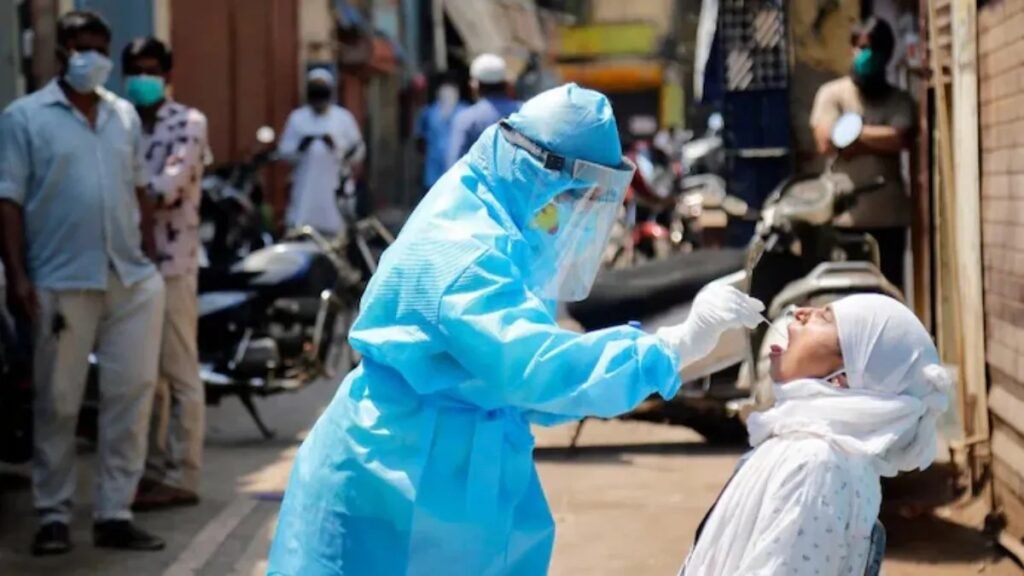COVID-19 cases are rising in parts of Asia, including Thailand and China, due to waning immunity, but health authorities urge vigilance—not panic—as most cases remain mild.
A fresh wave of COVID-19 is sweeping across parts of Southeast Asia, with Hong Kong, Singapore, China, and Thailand all reporting a noticeable rise in infections. Singapore, in particular, has seen a 28 per cent increase in cases over the past year, with 14,200 cases recorded as of May 3.
This resurgence appears to be linked to a fresh wave of the virus spreading across Asia. In China, cases are nearing last summer’s peak, while Thailand has seen an uptick following the April Songkran Festival. As the situation unfolds, it’s essential to take extra precautions to stay safe.
Which countries are reporting a spike in COVID-19 Cases?
- Hong Kong: Health officials have confirmed that Hong Kong is experiencing a new wave of COVID-19. The percentage of respiratory samples testing positive has jumped from 1.7% in March to 11.4%—even higher than during the August 2024 peak. Hong Kong has reported 81 severe cases, resulting in 30 deaths, most of whom were elderly individuals with pre-existing health conditions.
- Singapore: Singapore has seen a 28% spike in COVID cases in early May, with weekly infections rising to 14,200 and daily hospitalisations increasing by about 30%. At present, ‘LF.7’ and ‘NB.1.8’ — both descendants of the ‘JN.1’ variant — are the main variants of the COVID-19-causing virus circulating in Singapore. The daily hospitalisations increased from 102 to 133, but daily ICU admissions declined slightly from 3 to 2.
- China: China’s COVID numbers are climbing again, nearing the peak levels seen during last summer’s wave. Testing positivity rates have more than doubled in recent weeks, according to the Chinese Center for Disease Control and Prevention.
- Thailand: In Thailand, cases have risen following the Songkran festival in April. Two cluster outbreaks have been reported, and health authorities are monitoring the situation closely.
Should you travel to countries reporting surge in COVID-19 cases?
If you are planning to travel to countries currently experiencing a COVID-19 surge, it’s important to consider several factors, such as the severity of the outbreak, your personal health condition, and any local travel restrictions. If the trip is not essential, it’s advisable to postpone or choose a destination with fewer cases.
For essential travel, take necessary precautions: wear a mask, avoid crowded places, wash your hands frequently, and consider getting a booster shot beforehand. Keep an eye on your health throughout the trip, and make sure to carry hand sanitiser and any necessary medications.
Should you be worried?
Not necessarily. For most healthy, vaccinated individuals who are not part of a high-risk group, the current COVID-19 wave is being treated similarly to a seasonal flu outbreak. The majority of cases are mild, and people typically recover without serious issues.
However, for those who are elderly, immunocompromised, or have underlying health conditions, it’s advisable to take extra precautions. If it has been over a year since your last vaccine dose, a booster may be beneficial. Also, wearing a mask in crowded indoor spaces and avoiding travel when feeling unwell remains a smart way to reduce risk.
COVID-19 hasn’t gone away—it’s become an endemic virus, like the flu, that causes periodic waves. The current spike in Asia is a reminder to stay vigilant, but there’s no need to panic. With updated vaccines, common-sense precautions, and robust healthcare responses, this wave is being managed carefully.
Typical early symptoms of COVID included fever, cough, sore throat, runny nose and shortness of breath. These have remained the most common COVID symptoms across the multiple variant waves.
Most people who get COVID today will experience only a mild illness. But some people are still at risk of severe illness and are more likely to be hospitalised with COVID. This includes older people, those who are immunocompromised by conditions such as cancer, and people with other health conditions such as diabetes.
(With agencies input)
Also Read: Joe Biden diagnosed with aggressive prostate cancer, Trump says he is ‘saddened’ by diagnosis
Also Read: JD Vance meets Zelenskyy in Rome to discuss Ukraine-Russia peace talks
